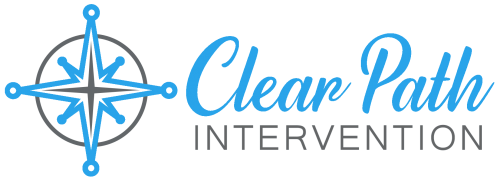by oanetwork
Share
by oanetwork
Share

Here’s a topic that is very relevant to the holiday season, a time that comes with built-in stress and plenty of exposure to close family members.
When a close family member is addicted to drugs or alcohol, their addiction takes a toll on you and your family. It is a slow process of utter devastation that comes from watching them ruin their lives and health while the family participates by actively enabling or ignoring the issues.

Addiction can be a problem your child is having, your spouse, your siblings or even your older parents. Either way, their negative behavior usually affects your life and family’s relationships in many negative ways. This is the soft way to put it.
Here’s some things that may give you a feeling of deja vu.
- Irresponsibility or out-of-character behavior including inability to handle commitments;
- Conflict becomes a normal part of every day with other close family members;
- Erosion of trust between family members (unreliability, borrowing money, confrontational behavior);
- Problems with money or destruction of shared finances;
- Difficulty in communication, which leads to additional incremental frustration;
- Development of further codependent behaviors;
- Having to face drastic physical changes in your loved one (excessive weight loss, track marks, other signs of drug abuse);
On a bigger level, you may witness or end up witnessing, your loved one facing criminal charges for DUIs or drug offenses, personal financial mayhem including debt or civil judgements for irresponsible finances, marriages dissolving due to addiction, and even domestic violence or sexual abuse.
There are also ramifications for young children who grow up exposed to the trauma of a parent suffering from addiction or substance abuse issues. This includes making children in the household more susceptible to substance abuse problems in adulthood. The normalization of this type of behavior during formative years leaves a lasting influence.
You Don’t Have To Live Like This Anymore
Why don’t more families turn to professionals to get help for addiction issues in their family? The main reason people delay asking for help with a loved one is caused by a chronic cycle of waiting. You do not really know what do to about the situation that is facing you, so instead your mind goes through constant waiting for “the right time,” “the right place,” and “the right situation” to finally get help. On the issue of waiting, it is a myth that you need to wait for your loved one to hit “rock bottom” in their addiction in order to intercede and help successfully.
This chronic waiting and avoidance of facing the issue directly can feel like it will go on forever, but really it just goes on until it is too late. If all of the things you are reading above ring true to you, the time to seek help for your family member was yesterday. This is not the time to start hating your loved one. A large number of addicts struggle with multiple issues besides their addiction and are often in denial. They may not even recognize the negative effects that their behavior is having on themselves and the family overall.
This is the time when you should be seriously considering a professional intervention led by a trained professional interventionist.
Understanding The Intervention
The most common misconception in and around substance use disorder within the family is the idea that our loved one struggling with addiction will one day logically look at their life situation and decide to change on their own. We know from years of experience that this almost never happens without some outside influence or change in reactions from the family surrounding the person struggling.
Also, in many cases, the emphasis around helping our loved one is hyper-focused on him/her and the family surrounding him/her is left out with little to no direction regarding how to move forward as a unit.
Our intervention team will help you navigate the critical steps that take place before, during and after the intervention. Proper preparation is key to the intervention being a success. During every step of the process, we make it a point to help everyone participating see that recovery doesn’t have to be confusing, but rather a chance to start fresh in a safe, optimistic way.
A ‘success’ in a professionally led intervention means that your loved one acknowledges the consequences of their behavior, agrees to attend, and shows up to, further alcohol or drug addiction treatment. This typically means in-patient rehab at a qualified facility.
For the family itself, the intervention is not about trying to control the addict. It is for the family to let go of the belief that they can control the addict. We have a focus on the family itself, their relationships within the family system, the family roles that each member plays, and how this all ties together and contributes to addiction. These are the overall things we do when leading an intervention within your family.
How To Get Help
Give us a call at (601) 503-7771 anytime. You’ll get to consult with 1 of our interventionists that currently work with families facing issues just like yours.
We also monitor our phone line after-hours, and will get back to you if we miss your call. Our certified interventionists will listen, advise and provide the guidance you and your loved ones need.
When our team is selected to lead an intervention for your family, our team travels to you to hold the intervention at a neutral location that we have all agreed upon during the intervention planning period.
HELP IS AVAILABLE
Do You Have a Loved One Struggling with Addiction or Mental Health Issues?
During the global COVID-19 pandemic, there has been a significant increase in alcohol use disorder-related deaths among all age groups and sexes. Actual mortality rates related to alcohol have been far higher than “normal statistical levels” for both 2020 and 2021. In 2020, observed death rates tied to alcohol were 25% higher than expected, and […]
The problems of addiction and substance abuse never go away. When you throw in all of the changes people faced during forced changes to their daily life during the COVID-19 pandemic, it is no surprise that there appears to be an increase in substance abuse-related deaths the last few years. Full and partial lockdowns, restrictions […]








